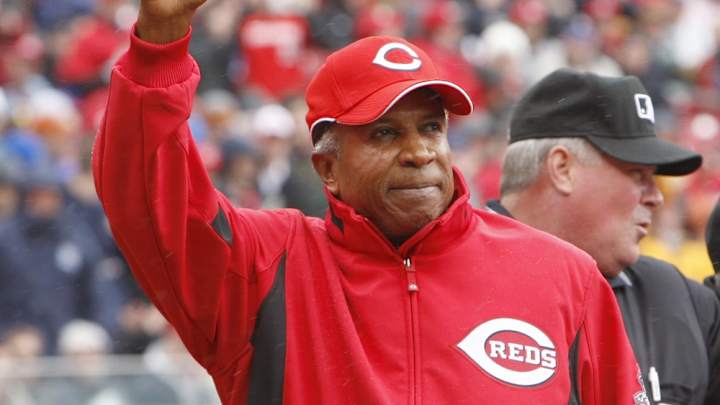Even After Getting Fired as a Manager, Frank Robinson Always Kept his Head Up

Yesterday, on Juneteenth, we wrote about Curt Flood, who lost his battle for free agency in the U.S. Supreme Court, although his loss led to all Major League Baseball players playing in a sport that accepted free agency just half a decade later.
As our old pal Tracy Ringolsby at /mlb/rockies/ who, in a deep dive Friday into black managers in the Major Leagues, pointed out, Flood’s wasn’t the only downer Juneteenth day on record.
Frank Robinson, who played in the same outfield as Flood at McClymonds High in Oakland, was the first black MLB manager to be fired. It happened on Juneteenth, 1977.
The firing was all but inevitable, because, as the saying goes, managers are hired to be fired, and Robinson was the first black big-league manager hired when he joined the Indians in 1975 while he was still playing at the end of a Hall of Fame career, having morphed from an outfielder to a DH.
As an aside, I’ve often thought that the McClymonds High outfield in 1953, the year Robinson was a senior, might have been the best prep outfield in history. Robinson went on to a Hall of Fame career, including 586 homers. Flood was a three-time All-Star, a two-time World Series ring winner and a seven-time Gold Glove winner. And the third outfielder was Vada Pinson, who’d play in four All-Star Games, captured a Gold Glove and was owner of four 200-hit seasons.
As good as he was, Robinson might not have been McClymonds’ best athlete. As a junior, he was a forward on the basketball team. The center? That would be Bill Russell, who would carry the University of San Francisco to back-to-back NCAA championships, lead Team USA to the 1956 Olympic Gold Medal and then win 11 NBA titles in 13 years for the Boston Celtics.
After that fateful Juneteenth firing, Robinson would be back. In the fall of 1980, the San Francisco Giants were looking for a new manager after a forgettable year-plus turned in by Dave Bristol. I was working at The Daily Review in Hayward, Calif., just south of Oakland, at the time and was fully immersed in baseball, covering both A’s and Giants home games.
My boss, Lowell Hickey (no relation, in case you’re wondering), took me aside one day. He wrote a column about three times a week, he was low on subject matter and he thought he could get some mileage out of the Giants’ managerial situation. He wanted to know who I thought the next manager of the Giants would be.
I was pretty full of myself (hard to believe, I know), and needed almost no time to blurt out Frank Robinson’s name. I’d liked the way he managed the Indians and he had a strong personality in the way that the two most recent Giants’ managers, Joe Altobelli and Bristol, had not. It was just a guess on my part, but the Giants did in fact hire him, which led my boss to say he wouldn’t second-guess me on baseball any more. That didn’t last long.
Robinson got fired by the Giants, too, and I remember him more for the way he reacted to being axed than for the way he’d managed. The Giants won that day in Atlanta, but the team was 42-64 and Robinson was fired. I was on the West Coast, working on the newspaper’s copy desk, but I managed to reach him in his hotel room in Atlanta, and he didn’t dodge a single tough question. We talked for 30 minutes, so long that I began to worry that I wouldn’t make deadline with the story.
As we were hanging up, he said something that I’d heard him say before. It was a simple “Keep your head up.” It seemed odd, given that he was the one who was fired, but Robinson always did keep his head up.
He’d have two more managerial jobs, with the Orioles and then with the Expos/Nationals.
After that he’d spend two decades working out of the commissioner’s office with occasional forays into broadcasting.
Through it all, he always kept his head up.
Follow Athletics insider John Hickey on Twitter: @JHickey3
Click the "follow" button in the top right corner to join the conversation on Inside the Athletics on SI. Access and comment on featured stories and start your own conversations and post external links on our community page.
